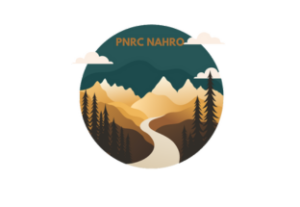How data can improve the success of leisure facilities in shopping venues
Online shopping is an ever-growing threat to physical real estates in the high street. As a consequence, retail investors face the new challenge of encouraging customers to get out of the house and visit their venues rather than spending their money online. Increasingly, a key part of attracting customers into a shopping venue is the quality of leisure facilities, particularly food and beverage. But how can investors ensure that these ventures are a success?
Sweet…
Eating and drinking have become firm ingredients of the retail menu. Research by the British Council of Shopping Centres indicates that eight per cent of units in shopping venues are dedicated to food and beverage (F&B). It reports: “There has been a significant amount of reconfiguration from retail to F&B use in centers in recent years.”
Colliers International also found that leisure is a key part of the modern shopping experience. Pubs, speciality bars and fine dining restaurants now sit alongside the traditional coffee shop. Health clubs, gyms and bowling alleys increase the overall leisure offering even further.
… and sour
However, the research also showed a consistent rate of failure among food and beverage outlets. They may exist in abundance but they are not always necessarily profitable.
The report comments: “F&B may increase total dwell time but it does not directly impact on dwell in retail units. Indeed, the research has been able to identify that including the wrong type of F&B can actually have a detrimental effect on the amount of time visitors spend in retail outlets.”
The findings are clear: there is a strong trend towards a broader F&B and leisure offering. The challenge lies in knowing what to incorporate. Which units will attract the right sort of customers? What will substantially increase footfall and ultimately profit?
The role of data
Shopping venues are not just open spaces; they are brands that need the correct tenant mix and the same applies to food and beverage units. In response, real estate software can provide an easy-to-understand overview of retail information. Solid data can help to determine incorrect tenant mix, below average sales turnover, existing vacancies and much more. This can be evaluated currently, historically and predictively over any defined period.
Retail investors should also understand their existing and target customer demographic: their age, likely income group, where they came from, and whether they are families, couples or singles. This data can be collected and evaluated using real estate software. By benchmarking visitor access against spending you can plan leisure facilities accordingly to drive footfall to the less busy parts of the venue.
Another key metric is customer shopping habits. By using heat mapping tools within real estate software, investors can determine when their consumers are visiting the venue and their dwell time. This data can then inform their choice of leisure outlets. Do people come at lunch to eat in a coffee shop but not for an evening meal? If so, there may be an opportunity for better fine dining choices.
Looking forward
Business intelligence is clearly a major ingredient when planning new leisure units. But data is also needed to successfully maintain these ventures.
Many shopping venues waste significant resources by operating inefficient facilities management processes. This can result in equipment breaking down frequently, engineers being deployed inefficiently and assets not lasting as long as they should.
Poor facilities will negatively impact on customer experience. And a negative experience will send them back to the world of online shopping.
If a retail investor plans to expand the leisure offerings within their venues, they need to evaluate their real estate software. In today’s competitive marketplace it is crucial to have a comprehensive facilities management system in place to enable effective management and maintenance of every outlet.
Summary
Leisure facilities are undoubtedly key to the success of modern shopping venues. But without data, they are not a sure home run. That’s why successful investors are using real estate software as a recipe for success.
Takeaways
- Customer expectations are changing. There is now a growing need for a range of F&B and leisure offerings at shopping venues.
- There are many to choose from but the choice should be based on thorough research
- Research and analysis tools are valuable because they enable owners, managers and investors to better focus their leisure offerings.
- Data captured and re-examined can quickly indicate which leisure facilities are profitable and worthwhile in generating traffic at shopping venues.
- With powerful data analysis tools at their disposal, owners, managers and investors can adjust and refine their F&B and leisure offerings going forward.
National Real Estate Advisors, LLC improves processes with MRI Investment Central and Investor Connect
National Real Estate Advisors, LLC (National) is an SEC-registered investment advisor with a specialized build-to-core strategy and a unique open-end real estate fund which invests in modern assets located in major US urban markets. The firm is headq…

